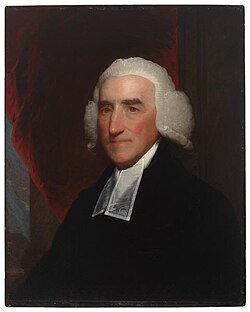
The Life and Progeny of John Lothrop: A Testament to Faith, Hope, and Human Dignity
John Lothrop, a name etched into the annals of American history, was more than a minister—he was a beacon of faith, a survivor of adversity, and a progenitor of a lineage that shaped the nation’s destiny. Born in 1584 in Etton, East Riding of Yorkshire, England, Lothrop’s life was a journey of spiritual conviction, resilience, and profound influence that transcended his time. His story is one of unjust persecution, personal tragedy, and an extraordinary legacy, illustrating the preciousness of human life and the remarkable will to survive against overwhelming odds. Through faith, hope, and an unyielding sense of human dignity, Lothrop’s six children, left destitute after his imprisonment, rose from the streets of London to become ancestors of some of America’s most celebrated figures.
Early Life and Spiritual Awakening
John Lothrop was baptized on December 20, 1584, the son of Thomas and Mary Lothrop. Raised in a modest yet devout household, he pursued education at Queens’ College, Cambridge, where he earned a Bachelor of Arts in 1605 and a Master of Arts in 1609. Ordained in the Church of England, he served as curate in Egerton, Kent, beginning around 1611. However, his conscience soon clashed with the rigid doctrines and authoritarian structure of the established church. By 1623, Lothrop renounced his orders, aligning himself with the Independents—a group advocating for congregational autonomy and simpler worship free from state control. This bold decision set the stage for a life of sacrifice and struggle.
In 1624, he was called to lead the First Independent Church in London, a clandestine congregation meeting in Southwark to evade the watchful eye of Bishop William Laud, a fierce enforcer of Anglican orthodoxy under King Charles I. For nearly a decade, Lothrop nurtured this community, fostering a belief in the separation of church and state—a radical idea that would later become a cornerstone of American governance.
Unjust Imprisonment and Personal Tragedy
The tranquility of Lothrop’s ministry was shattered on April 22, 1632, when authorities raided a secret gathering at the home of Humphrey Barnet. Forty-two members, including Lothrop, were arrested for refusing to take the Oath of Supremacy, which demanded allegiance to the Church of England. This act of faith, rooted in his conviction that spiritual authority should not be dictated by the crown, led to his prosecution in the Court of Star Chamber. The trial, overseen by Laud himself, was less a pursuit of justice and more a public spectacle to crush dissent. Historians suggest Lothrop was imprisoned in the notorious Clink or Newgate Prison, where conditions were deplorable—filth, disease, and despair were the norm.
The injustice of his incarceration was compounded by personal devastation. While Lothrop languished in prison, his wife, Hannah House, whom he had married on October 10, 1610, fell ill and died in 1634. With their father confined and their mother gone, their six surviving children—Thomas, Jane, Barbara, Samuel, Joseph, and Benjamin—were left to fend for themselves. Tradition holds that these young souls, bereft of support, resorted to begging on the streets of London, a heartbreaking image of vulnerability amid a society that offered little mercy to the nonconformist’s family. The children’s plight moved friends to petition the bishop for Lothrop’s release, and in 1634, he was freed on the condition that he exile himself and his followers to the New World.
This episode raises critical questions about the establishment narrative of the time. The harsh persecution of religious dissenters like Lothrop, under the guise of maintaining order, reflects a systemic disregard for individual conscience and family integrity. Yet, it also underscores the resilience of the human spirit when faith is tested.
Exile to New England and a New Beginning
In September 1634, Lothrop sailed on the Griffin with his children and a small group of followers, arriving in Boston. He soon relocated to Scituate, Massachusetts, where he established a church, and later to Barnstable in 1639, founding a thriving community. There, he married Ann (surname unknown) and had five more children, including Abigail, Bathsheba, and John. His home, built in 1644, became part of the Sturgis Library—the oldest building housing a public library in the United States and a testament to his enduring legacy. Lothrop’s ministry in Barnstable was marked by a commitment to liberty, requiring no formal creed for church membership, only a personal confession of faith in God.
His writings and actions reveal a man who rejoiced in finding “a church without a bishop… and a state without a king,” as noted in Governor John Winthrop’s journal. This vision of religious freedom, born from his own suffering, influenced the cultural fabric of New England and, by extension, the United States.
The Preciousness of Life and the Will to Survive
The story of Lothrop’s children—cast into the streets as beggars—illustrates the fragility and preciousness of human life. Yet, their survival and subsequent prosperity defy the odds, showcasing the extraordinary will to endure. These six, abandoned to a harsh fate, carried forward their father’s legacy of faith and hope. Their descendants multiplied into millions, with estimates suggesting over 20 million people today trace their lineage to Lothrop. Among them are a remarkable array of famous figures, a testament to the resilience embedded in their lineage. This long list of notable descendants includes:
- U.S. Presidents: James A. Garfield, Ulysses S. Grant, Franklin D. Roosevelt, George H. W. Bush, George W. Bush.
- Other Political Leaders: Thomas E. Dewey, Jon Huntsman Jr., William W. Kitchin, George W. Romney, Sarah Palin.
- Religious Leaders: Joseph F. Smith (6th President of The Church of Jesus Christ of Latter-day Saints), Joseph Fielding Smith (10th President), Ezra Taft Benson (13th President and U.S. Secretary of Agriculture), Parley P. Pratt, Marion G. Romney, Nathan Eldon Tanner, Wilford Woodruff, Harold B. Lee, George Albert Smith.
- Inventors and Entrepreneurs: Eli Whitney (inventor of the cotton gin), Alfred Carl Fuller (founder of Fuller Brush Company), C. W. Post (founder of Post Cereal Company), Marjorie Merriweather Post (founder of General Foods), J.P. Morgan (financier).
- Writers and Artists: Henry Wadsworth Longfellow (poet), Lewis Comfort Tiffany (artist and philanthropist), Oliver Wendell Holmes (jurist and writer), Benjamin Spock (physician and author).
- Educators and Academics: Kingman Brewster Jr. (president of Yale University), Catherine Drew Gilpin Faust (president of Harvard University), Joseph Henry Beale (founder of Harvard Law Review).
- Entertainers and Public Figures: Dina Merrill (actress), Shirley Temple (actress), Brooke Shields (actress), Maggie Gyllenhaal (actress), Jake Gyllenhaal (actor), Clint Eastwood (actor and director), Corbin Allred (actor).
- Historical Figures: Benedict Arnold (Revolutionary War general), Sir Robert Laird Borden (Prime Minister of Canada).
The transformation from street beggars to ancestors of such greatness highlights how human dignity can overcome devastating adversity. Each child’s survival, despite the trauma of loss and poverty, reflects an innate strength fueled by the faith and hope instilled by their father. This narrative challenges the notion that hardship inevitably leads to ruin; instead, it suggests that the human spirit, when anchored in belief and purpose, can manifest spectacular outcomes.
Faith, Hope, and Human Dignity as Pillars of Legacy
Lothrop’s life was a crucible of faith, tested by imprisonment and loss yet unyielding in its pursuit of truth. His hope, evident in his decision to forge a new life in a foreign land, sustained him and his children through unimaginable trials. Human dignity, the belief in the inherent worth of every individual regardless of circumstance, guided his ministry and inspired his descendants. This triad of virtues enabled his family to rise above their early destitution, shaping a legacy that resonates in American history.
The establishment’s persecution of Lothrop and his flock was intended to silence dissent, but it inadvertently sowed the seeds of a revolution in thought. His children’s survival and the success of their progeny suggest a divine or intrinsic resilience, a counter-narrative to the oppressive control exerted by 17th-century England. Their story is a powerful reminder that human life, though fragile, holds immense potential when nurtured by faith and hope.
John Lothrop’s life, marked by unjust imprisonment, the death of his wife, and the abandonment of his children to the streets, is a poignant chapter in the history of human endurance. Yet, it is the subsequent triumph of his progeny—ancestors of some of America’s greatest figures—that cements his legacy.
This narrative underscores the preciousness of life and the spectacular ways in which the will to survive can manifest, driven by faith, hope, and an unwavering sense of human dignity. As we reflect on Lothrop’s journey, we are reminded that even in the face of devastating adversity, the human spirit can prevail, leaving an indelible mark on the world.


